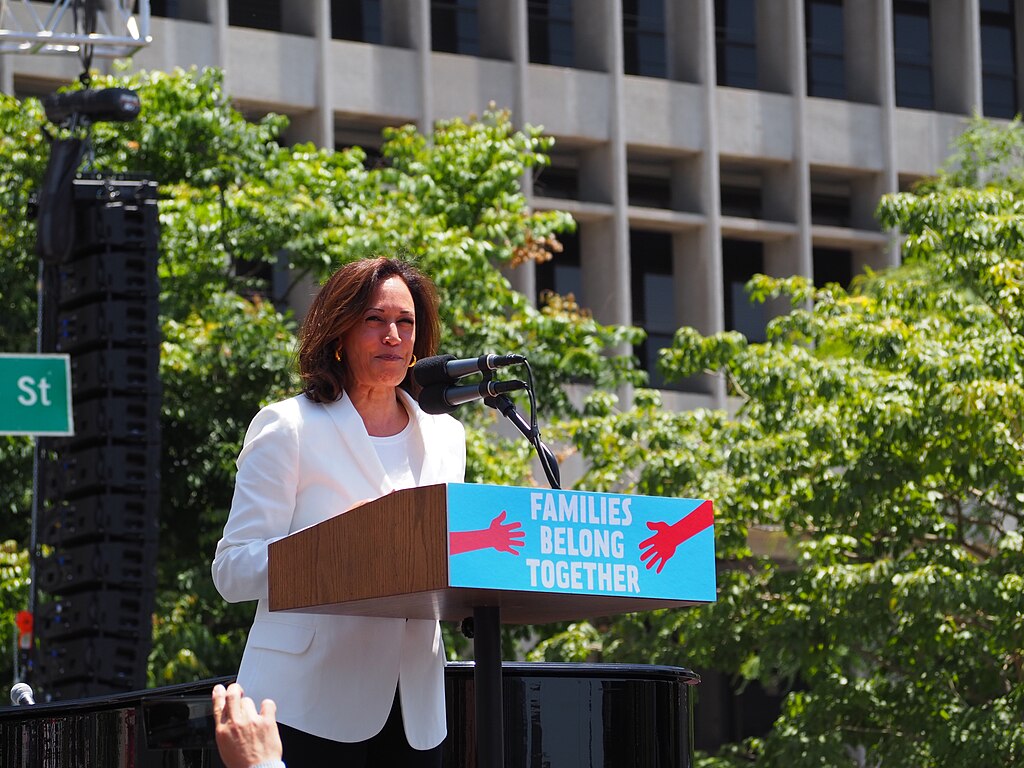Vice President Kamala Harris’s lead in New York City has dropped to unprecedented levels, showing only a 66%-27% edge over her Republican contender, according to a new NYT/Siena poll. This startling statistic represents the lowest Democratic performance in the city since 1988, when Michael Dukakis ran against then-Vice President George H.W. Bush, raising questions about the Democratic Party’s grasp on one of its most reliable urban strongholds.
Traditionally a Democratic fortress, New York City’s enthusiasm for Harris appears diminished, with the poll reflecting a notable decline in support among younger voters, independents, and even some historically Democratic demographics. Harris’s 66% support is far from the commanding margins that Democrats like Barack Obama and Hillary Clinton enjoyed in the city, both of whom held well over 80% in various polls during their campaigns. The Democratic Party’s internal strategists have taken note, concerned that a narrowing margin in New York City signals potential vulnerabilities that could impact the national stage.
Analysts are scrambling to understand the reasons behind this unexpected shift. “This is a wake-up call,” commented Dr. Lena Montgomery, a political science professor at New York University. “New York City has always been a cornerstone of Democratic campaigns, and these numbers indicate waning enthusiasm and a possibly significant lack of confidence in Harris’s platform.”
Some insiders point to Harris’s handling of national issues, including crime and immigration, both of which hold a particular resonance in urban centers. While Harris has highlighted progressive stances on criminal justice reform, some NYC voters express concern over rising crime rates and a perception of reduced public safety. Furthermore, her stances on border policies have stirred mixed reactions in New York, a city with a large immigrant population that is increasingly concerned about federal immigration approaches.
The low polling numbers also reflect a changing demographic in New York City, where younger voters and middle-income families are facing affordability issues. “It’s not just about Harris as an individual,” added Dr. Montgomery. “It’s about what her candidacy represents and whether it speaks to the concerns of modern New Yorkers.”
Meanwhile, Republicans see this dip as an opportunity to make inroads in the traditionally Democratic city. GOP strategists have already seized on Harris’s lagging numbers to push forward messaging that portrays their party as a viable alternative, even in one of the bluest cities in the country. “New Yorkers are tired of the same old promises that go unfulfilled,” claimed one Republican strategist. “They want solutions, not slogans.”
If Harris’s campaign doesn’t address this decline in enthusiasm, some fear the issue could ripple outward to other urban areas where voters are growing increasingly concerned about similar issues. A narrow win in New York City would undermine the Democratic Party’s historic image as the clear choice for urban centers, potentially impacting their national campaign strategy.
The question now becomes whether Harris and her team will be able to rally and regain the confidence of New Yorkers. The city’s electorate has, time and again, proven to be loyal to Democratic candidates, but these numbers suggest a shift that could spell trouble if left unaddressed. As the election season continues, all eyes will be on whether Harris can turn these numbers around—or if New York City’s shifting landscape indicates broader challenges for the Democratic Party across the country.



 Why did Iran bomb Dubai? A Middle East expert explains the regional alliances at play
Why did Iran bomb Dubai? A Middle East expert explains the regional alliances at play  Trump Announces U.S. Strikes on Iran Navy as Conflict Escalates
Trump Announces U.S. Strikes on Iran Navy as Conflict Escalates  Russia Signals Openness to U.S. Security Guarantees for Ukraine at Geneva Peace Talks
Russia Signals Openness to U.S. Security Guarantees for Ukraine at Geneva Peace Talks  Israel Declares State of Emergency as Iran Launches Missile Attacks
Israel Declares State of Emergency as Iran Launches Missile Attacks  Failure of US-Iran talks was all-too predictable – but Trump could still have stuck with diplomacy over strikes
Failure of US-Iran talks was all-too predictable – but Trump could still have stuck with diplomacy over strikes  Trump to Address Nation as U.S. Launches Strikes in Iran, Axios Reports
Trump to Address Nation as U.S. Launches Strikes in Iran, Axios Reports  Marco Rubio to Brief Congress After U.S.-Israeli Strikes on Iran
Marco Rubio to Brief Congress After U.S.-Israeli Strikes on Iran  UK Accepts U.S. Request to Use British Bases for Defensive Strikes on Iranian Missiles
UK Accepts U.S. Request to Use British Bases for Defensive Strikes on Iranian Missiles  Trump Says U.S. Combat Operations in Iran Will Continue Until Objectives Are Met
Trump Says U.S. Combat Operations in Iran Will Continue Until Objectives Are Met  HHS Adds New Members to Vaccine Advisory Panel Amid Legal and Market Uncertainty
HHS Adds New Members to Vaccine Advisory Panel Amid Legal and Market Uncertainty  U.S. Deploys Tomahawks, B-2 Bombers, F-35 Jets and AI Tools in Operation Epic Fury Against Iran
U.S. Deploys Tomahawks, B-2 Bombers, F-35 Jets and AI Tools in Operation Epic Fury Against Iran  U.S.-Israel Strike on Iran Escalates Middle East Conflict, Trump Claims Khamenei Killed
U.S.-Israel Strike on Iran Escalates Middle East Conflict, Trump Claims Khamenei Killed  Trump Warns Iran as Gulf Conflict Disrupts Oil Markets and Global Trade
Trump Warns Iran as Gulf Conflict Disrupts Oil Markets and Global Trade  Suspected Drone Strike Hits RAF Akrotiri Base in Cyprus, Causing Limited Damage
Suspected Drone Strike Hits RAF Akrotiri Base in Cyprus, Causing Limited Damage  Does international law still matter? The strike on the girls’ school in Iran shows why we need it
Does international law still matter? The strike on the girls’ school in Iran shows why we need it  Iran Supreme Leader Ayatollah Ali Khamenei Killed in Israeli, U.S. Strikes: Reuters
Iran Supreme Leader Ayatollah Ali Khamenei Killed in Israeli, U.S. Strikes: Reuters 































